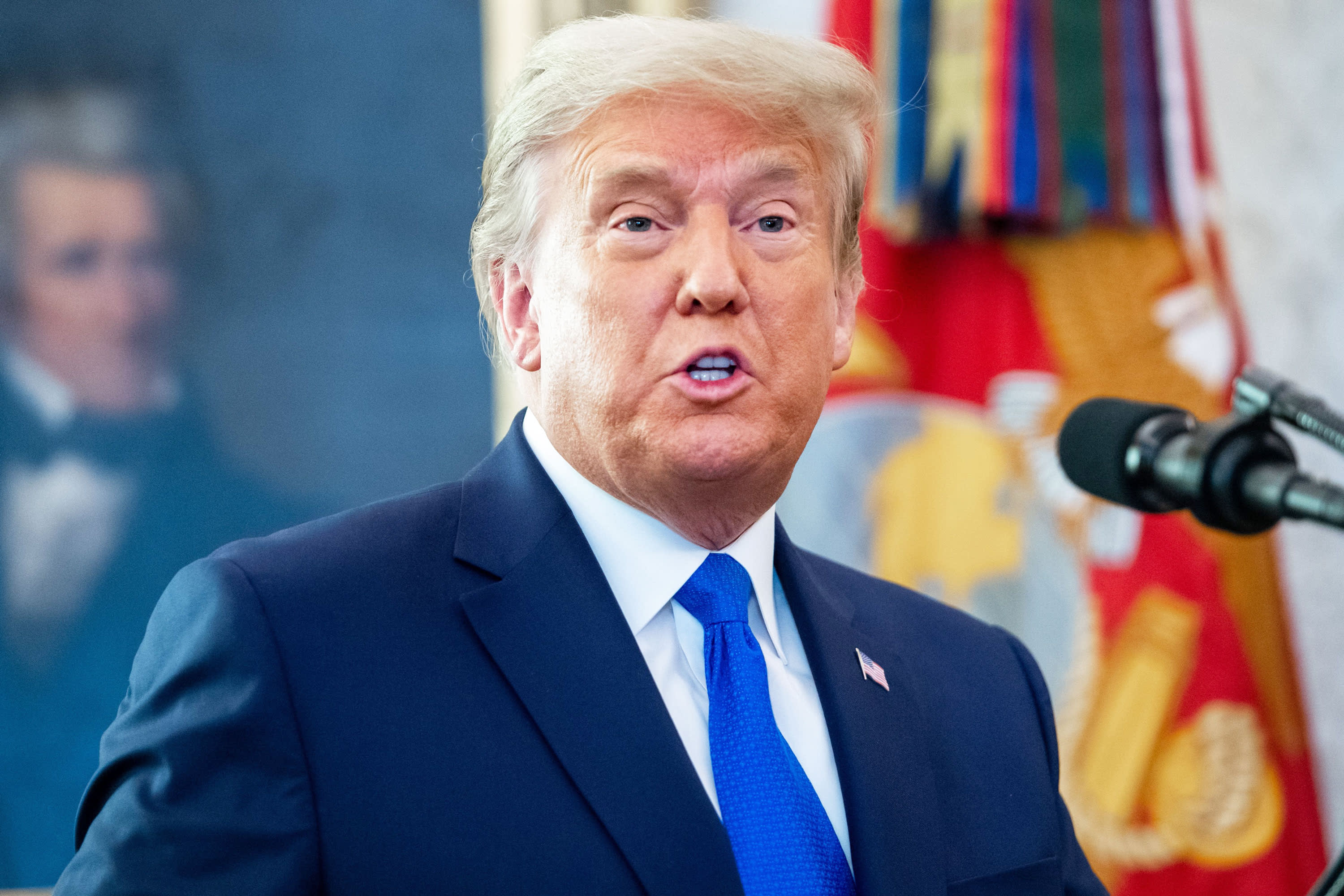US President Donald Trump speaks during a ceremony presenting the Presidential Medal of Freedom to wrestler Dan Gable in the Oval Office of the White House in Washington, DC on December 7, 2020.
Saul Loeb | AFP | Getty Images
President Donald Trump is expected to sign an executive order on Tuesday designed to ensure that U.S. efforts to assist other countries in vaccinating their populations against Covid-19 take on a lower priority than domestic inoculations.
In a call with reporters Monday afternoon, a senior administration official described the order as primarily a “reaffirmation of the president’s commitment to America First.” Additionally, the order directs a handful of government agencies, including the State Department and the United States Agency for International Development, to work together to help international partners and allies procure Covid vaccines, the official said.
CNBC has not reviewed the proposed text of the executive order, which could prove to be largely symbolic. The plans for the executive order were earlier reported by Fox News.
An administration official told NBC News on Monday that the timeline for providing foreign assistance will be shaped by supply and demand but is anticipated to begin in the second quarter. President-elect Joe Biden will take office on Jan. 20 and is likely to shape his own policy for obtaining and distributing Covid-19 vaccines, possibly limiting the impact of Trump’s order.
Trump is expected to sign the order after delivering remarks at the start of a Covid-19 summit at the White House on Tuesday, a senior administration official said on Monday’s call. The event will feature talks with administration officials and drug distributors, who will discuss the process of reviewing vaccine candidates and distributing them, the official said.
Trump has largely ignored the growing coronavirus crisis in recent weeks despite a surge in infections and a mounting death toll that has surpassed 2,000 fatalities per day, instead focusing on legal efforts to overturn the results of November’s presidential election.
Nonetheless, the signing will come at a particularly critical phase of vaccine development.
Trump will sign the order just days before the Food and Drug Administration meets, on Thursday, to review a promising vaccine made by Pfizer and German drugmaker BioNTech.
That vaccine may be authorized for use as soon as the end of this week. The FDA will meet to discuss another candidate, made by Moderna, on Dec. 17.
While some particularly vulnerable Americans could be vaccinated shortly after the vaccines are approved, officials are warning that it will take months for everyone who wants a vaccine to receive one.
Health and Human Services Secretary Alex Azar predicted on Sunday that vaccines are not likely to be available to everyone who requests one until the second quarter.
The Trump administration signed a deal over the summer to purchase 100 million doses of Pfizer’s vaccine if it worked, enough to supply 50 million Americans.
On Monday afternoon, The New York Times reported that the administration declined an offer from Pfizer at the time for additional doses.
The Times, citing unnamed people familiar with the matter, reported that the company may now be limited in how much vaccine it can supply as a result of its commitments to other countries and may not be able to provide additional vaccine to the U.S. until June.
A spokesperson for the HHS, pressed by the Times about whether the government missed an opportunity to purchase more of Pfizer’s vaccine, said, “We are confident that we will have 100 million doses of Pfizer’s vaccine as agreed to in our contract, and beyond that, we have five other vaccine candidates.”
A spokesperson for Pfizer told the Times that “the company is not able to comment on any confidential discussions that may be taking place with the U.S. government.”
The White House and the HHS did not immediately provide details of the executive order. Pfizer and BioNTech did not reply to emails seeking comment.
Subscribe to CNBC Pro for the TV livestream, deep insights and analysis on how to invest during the next presidential term.

